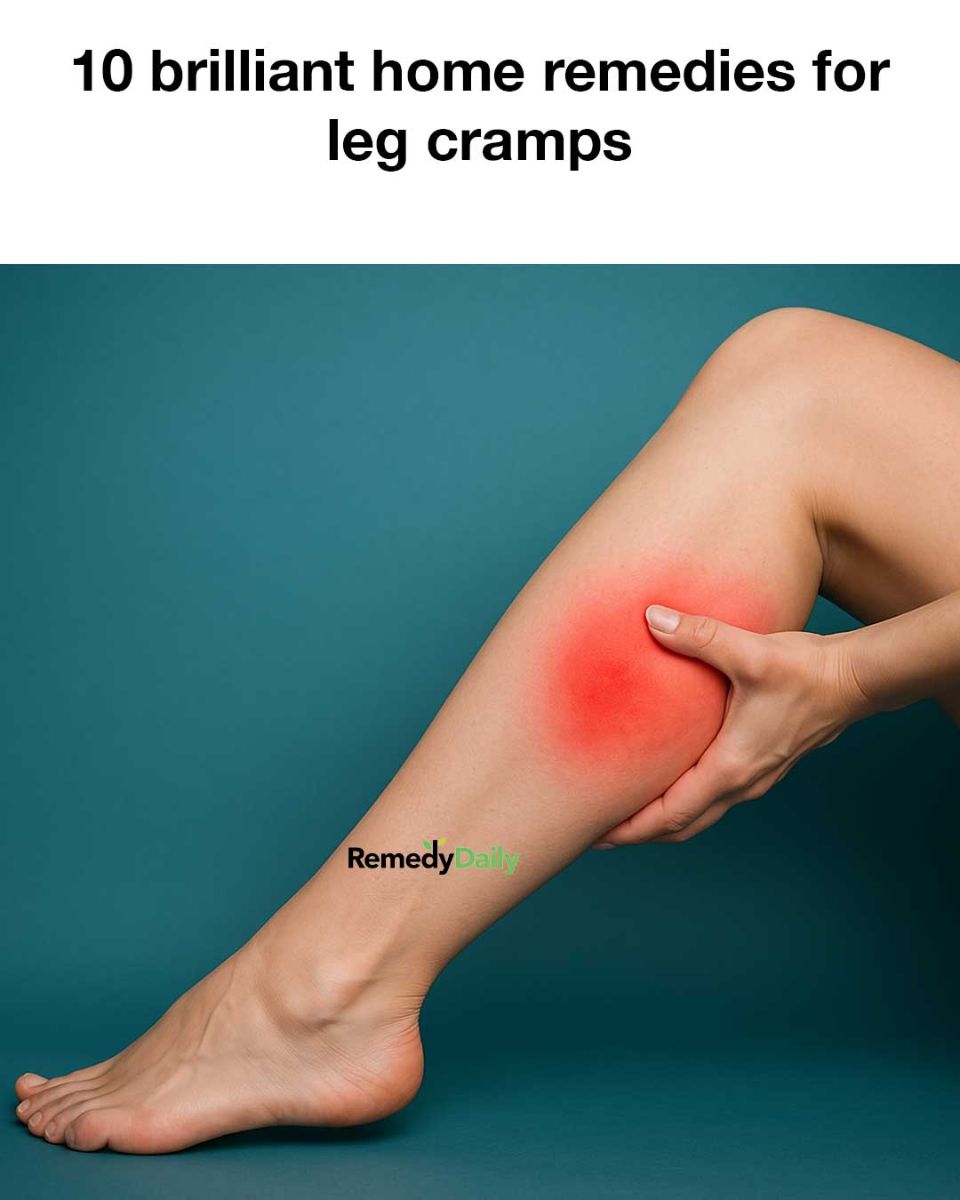Leg cramps, often characterized by sudden, involuntary contractions of the muscles, can be both painful and disruptive. These cramps commonly occur in the calf muscles but can also affect the thighs and feet. While they can happen at any time, they are particularly common at night, disrupting sleep and causing discomfort. Home remedies offer a natural and accessible way to alleviate the pain and prevent future occurrences, providing relief without the need for medication.
Understanding the Causes of Leg Cramps
Leg cramps can be caused by a variety of factors, including dehydration, overuse of muscles, prolonged sitting or standing, and deficiencies in certain minerals such as potassium, calcium, and magnesium. They can also be a side effect of certain medications or a symptom of underlying health conditions like diabetes or peripheral artery disease. Understanding the root cause of leg cramps is crucial in choosing the most effective remedy.
Advertisement
The Importance of Home Remedies for Leg Cramps
Home remedies are important for managing leg cramps because they offer a natural, cost-effective, and often immediate solution. They can help address the underlying causes of cramps, such as dehydration or mineral deficiencies, and provide relief through simple lifestyle changes or natural treatments. These remedies are particularly beneficial for those who prefer to avoid pharmaceuticals or who experience frequent cramps.
1. Hydration: The Key to Preventing Leg Cramps
Staying hydrated is essential for preventing leg cramps, as dehydration can lead to muscle contractions. Ensuring adequate water intake throughout the day helps maintain the balance of electrolytes, which are crucial for muscle function. Drinking water before, during, and after exercise is especially important to prevent exercise-induced cramps.
2. Stretching Exercises: Relieving Tension and Preventing Cramps
Regular stretching exercises can help relieve muscle tension and prevent cramps. Stretching the calf muscles, hamstrings, and quadriceps can improve flexibility and reduce the likelihood of cramping. Incorporating a routine of gentle stretches before bed can also help prevent nighttime leg cramps.
3. Magnesium Supplements: Boosting Muscle Function
Magnesium plays a vital role in muscle function and relaxation. A deficiency in this mineral can lead to increased muscle cramps. Taking magnesium supplements or incorporating magnesium-rich foods like nuts, seeds, and leafy greens into your diet can help alleviate and prevent cramps.
4. Heat Therapy: Soothing Muscle Pain and Discomfort
Applying heat to the affected area can help soothe muscle pain and discomfort associated with cramps. A warm towel, heating pad, or warm bath can increase blood flow to the muscles, promoting relaxation and reducing cramping.
5. Cold Compress: Reducing Inflammation and Numbness
A cold compress can be effective in reducing inflammation and numbing the pain of a cramp. Applying ice wrapped in a cloth to the cramped muscle for 15-20 minutes can help alleviate the pain and reduce swelling.
6. Epsom Salt Bath: Relaxing Muscles with Magnesium Sulfate
An Epsom salt bath is a relaxing way to relieve muscle cramps. Epsom salt, which contains magnesium sulfate, can be absorbed through the skin, helping to relax muscles and reduce cramping. Soaking in a warm bath with Epsom salt for 20 minutes can provide relief.
7. Apple Cider Vinegar: Balancing Electrolytes Naturally
Apple cider vinegar is believed to help balance electrolytes due to its potassium content. Drinking a mixture of one tablespoon of apple cider vinegar in a glass of warm water can help prevent cramps by maintaining electrolyte balance.
8. Mustard: An Unexpected Remedy for Quick Relief
Mustard is an unexpected yet effective remedy for leg cramps. It is thought that the acetic acid in mustard helps the body produce more acetylcholine, a neurotransmitter that promotes muscle relaxation. Consuming a teaspoon of mustard can provide quick relief from cramps.
9. Chamomile Tea: Calming Muscles with Natural Antispasmodics
Chamomile tea contains natural antispasmodic properties that can help calm muscles and reduce cramping. Drinking a cup of chamomile tea before bed can help relax the muscles and prevent nighttime leg cramps.
10. Bananas: A Potassium-Rich Snack to Prevent Cramps
Bananas are an excellent source of potassium, a mineral essential for muscle function. Eating a banana as a snack can help prevent cramps by ensuring adequate potassium levels in the body, which is crucial for preventing muscle contractions.
Advertisement
Conclusion: Choosing the Right Remedy for You
Choosing the right remedy for leg cramps depends on the underlying cause and personal preference. It may be beneficial to try a combination of remedies to find what works best for you. Whether it's staying hydrated, incorporating more magnesium into your diet, or using heat therapy, these home remedies offer a natural and effective way to manage and prevent leg cramps.

